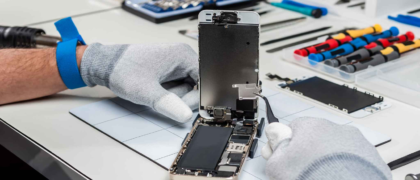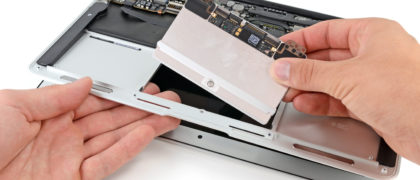
A repair technician might work in a corporate information technology department, a central service center, or a retail computer sales environment. A public sector technician might work in the military, national security or law enforcement communities, health or public safety field, or an educational institution.
Despite the vast variety of work environments, all computer technicians perform similar physical and investigative processes, including technical support.

SOFTWARE REPAIR
When possible, repair technicians protect the computer user’s data and settings, so that, after repair, the user will not have lost any data and can fully use the device with little interruption.
Addressing the issue, the technician could take action as minor as adjusting one or several settings or preferences, but could also apply more involved techniques like installing, uninstalling, or reinstalling various software packages.
Experienced technicians might specialize in fields such as data recovery, system administration, or information systems. Some technicians are self-employed or own a firm that provides services in a regional area. Some are subcontracted as freelancers or consultants. While computer hardware configurations vary widely.
This type of technician ranges from hobbyists and enthusiasts that volunteer or make a little side money, to those who work professionally in the field.

HARDWARE REPAIR
While computer hardware configurations vary widely, a “Computer OEM & Repair” technician will work with five general categories of hardware;
Desktop Wcomputers, laptops, servers, computer clusters and smartphones / mobile computing. Technicians also work with and occasionally repair a range of peripherals, including input devices (like keyboards, mice, and scanners), output devices.
